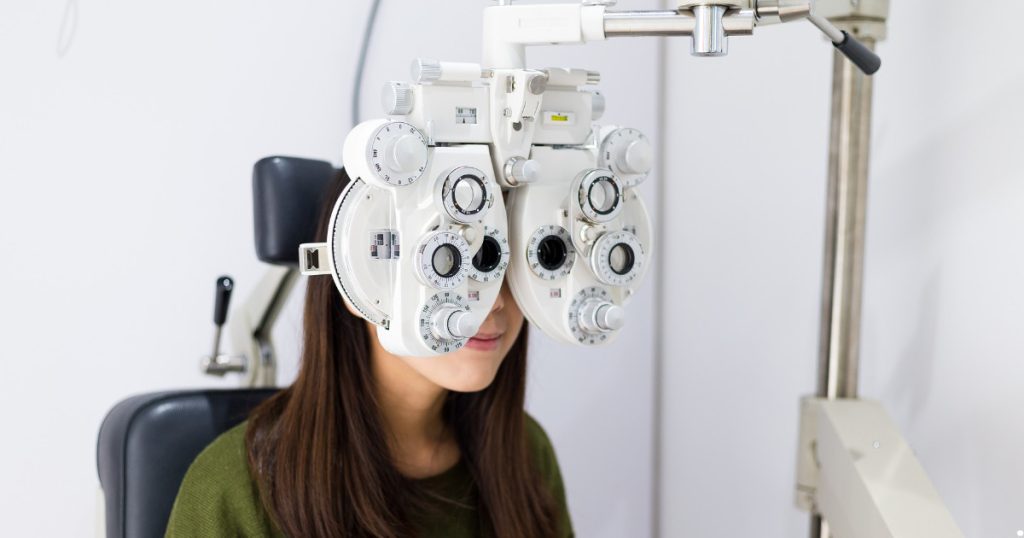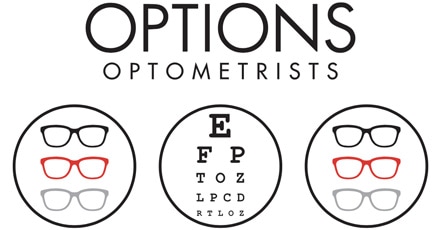Healthy people under 65 should have their eyes tested at least every 2 years. However, if you notice any vision changes or have any concerns, you should see us immediately for a bulk-billed eye exam. If you have a specific eye condition or are over 65, it’s best to have your eyes checked yearly.

Regular eye exams are key to maintaining good eye health. They don’t just determine whether you need glasses or a new prescription. An optometrist can also spot the early signs of common medical conditions such as diabetes and high blood pressure.
Factors Affecting Frequency
Eye tests are important for everyone, but some people are at a higher risk of developing eye problems. Everyone’s eyes are different, so you should speak with an optometrist to determine how often you need to get your eyes checked.
Age
Infants & Toddlers
We recommend that children have their first eye exam at around three or four years old. This can help catch any potential vision problems before they start school. A child’s eye test is different from adults’ because the tests are specifically designed to suit the child’s age. Optometrists can also perform preliminary tests from as early as 6 months old.
Children
Children often don’t complain about their vision, so many parents are unaware of any visual issues. Vision is a key part of a child’s development, and undetected issues can impact their learning ability. An optometrist can perform a comprehensive eye exam to ensure your child’s eyes are healthy. It is recommended to have an eye test at the start of each school year to monitor any changes in their vision.
You should also arrange for an eye test if you or your child notices any signs of vision problems, such as squinting, eye rubbing, difficulty concentrating, headaches or blurry vision.
Seniors
Your vision naturally changes as you get older. That’s why adults 65 and older should have an annual eye exam. These yearly checkups can detect and diagnose eye problems in their early stages. People over the age of 60 are more susceptible to a range of eye disorders, such as:
- Age-related Macular Degeneration (AMD)
- Glaucoma
- Cataracts
- Retinal Detachment
Visit our dedicated page on seniors’ eye tests to learn about the common eye conditions seniors encounter.
Medical Conditions
People with certain medical conditions may need to have their eyes tested more frequently. You should have an eye test more regularly if you have risk factors such as:
- Diabetes
- High Blood Pressure
- History of Stroke
- Brain and Nerve Conditions
- Family History of Eye Disease
If you have any of these conditions, you may need to have specialised eye tests such as an OCT scan or retinal imaging. These tests provide a more detailed look at the health of your eyes.
You may also need more frequent eye exams if you have been diagnosed with certain eye-related conditions, such as:
- Short-sightedness (Myopia)
- Long-sightedness (Hyperopia)
- Astigmatism
- Macular Degeneration
- Glaucoma
- Retinal Detachment
- Cataracts
Book An Eye Test
Options Optometrists provides quality eye care for patients of all ages. Our experienced team is dedicated to supporting you on your eye health journey. We offer 30-minute appointments focused on providing quality eye care and addressing what matters most, our patients.
